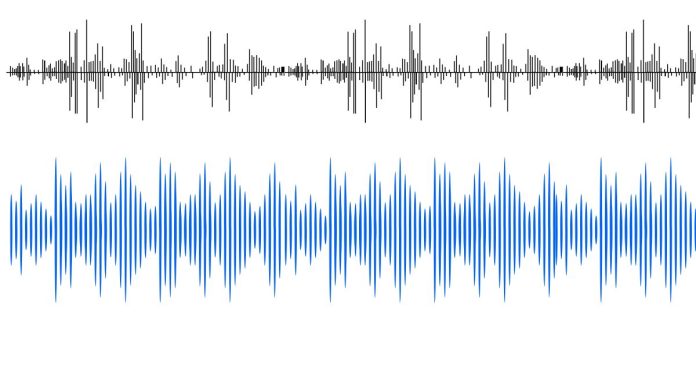Sound waves are a type of mechanical wave that require a medium (such as air, water, or solids) to travel. They are created by vibrations and travel as a series of compressions and rarefactions through the medium. Here’s how the process works in detail:
1. Vibration Creates Sound
- Sound begins when an object vibrates. For example, when you strike a drum, the drumhead vibrates, displacing the surrounding air particles.
- These vibrations create regions of compression (where particles are pushed together) and rarefaction (where particles are spread apart).
2. Propagation Through a Medium
- Sound travels through the medium in the form of a longitudinal wave, meaning the particles of the medium move in the same direction as the wave itself.
- In air, this means that sound waves cause air molecules to move back and forth along the direction of wave travel.
- Compression: Molecules are pushed together, increasing the air pressure in that region.
- Rarefaction: Molecules spread apart, decreasing the air pressure in that region.
3. Energy Transfer
- As each air molecule vibrates, it transfers energy to the adjacent molecules, causing them to vibrate as well. This transfer continues until the sound wave reaches your ear or another point of detection.
- The energy moves outward from the source in the form of pressure fluctuations, carrying the sound from one place to another.
4. Speed of Sound
- The speed at which sound travels depends on the medium and its properties:
- Air: In dry air at 20°C (68°F), sound travels at about 343 meters per second (m/s) or 1,125 feet per second (ft/s).
- Water: Sound travels faster in water, at about 1,480 m/s.
- Solids: Sound travels even faster in solids; for example, in steel, it moves at about 5,960 m/s.
Sound travels faster in denser and more elastic media, which is why it moves faster through solids than through gases.
5. Factors Affecting Sound Travel
Several factors affect how sound waves travel:
- Medium: As mentioned, sound requires a medium to travel through. It cannot travel through a vacuum (like space), as there are no particles to carry the vibrations.
- Temperature: In general, warmer temperatures increase the speed of sound. As molecules move faster in warmer conditions, they can transfer energy more quickly.
- Density of the Medium: The denser the medium, the faster sound travels. For example, sound travels faster in water than in air.
6. How We Hear Sound
When the sound waves reach our ears, they vibrate the eardrum, which in turn sends signals to the brain. The brain then interprets these signals as sound.
Summary
Sound waves travel as longitudinal waves through various media, causing particles to vibrate and pass energy along. The speed and distance that sound can travel depend on the medium, temperature, and density. Sound cannot travel through a vacuum, as there are no particles to carry the vibrations.


